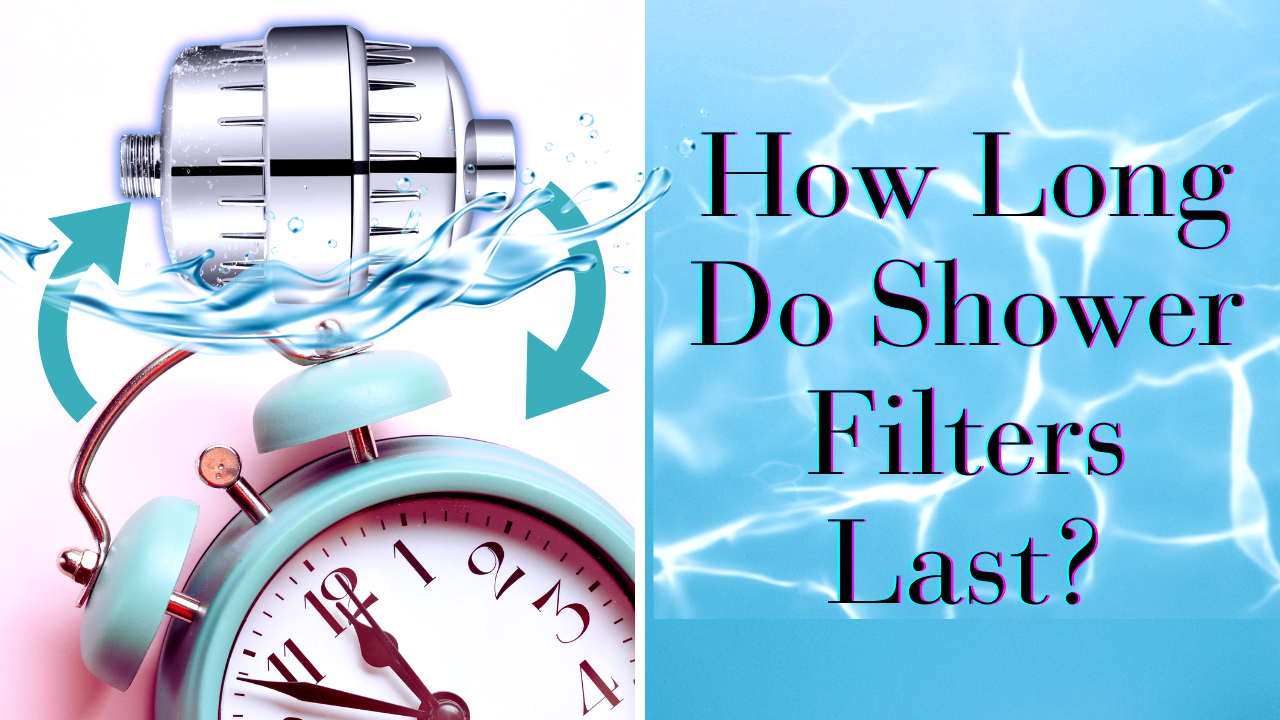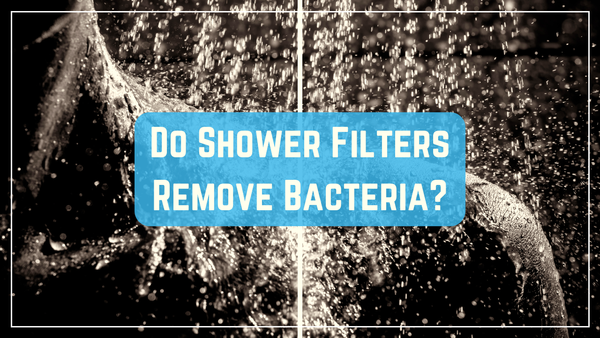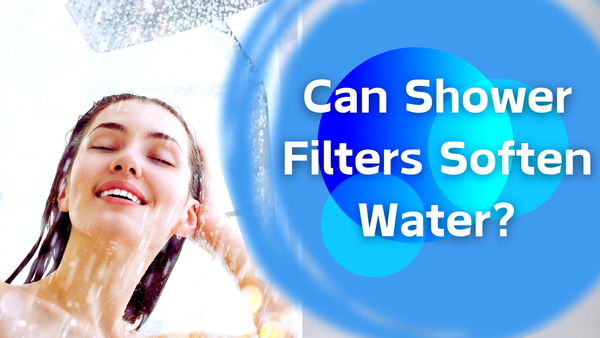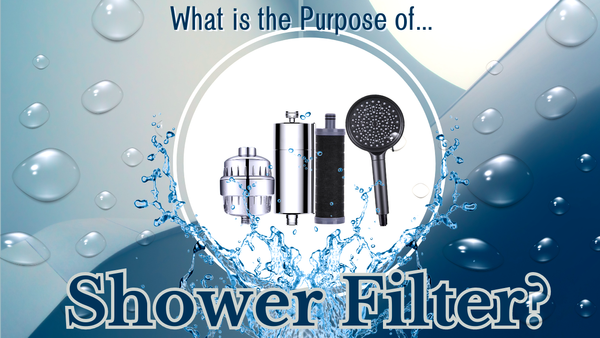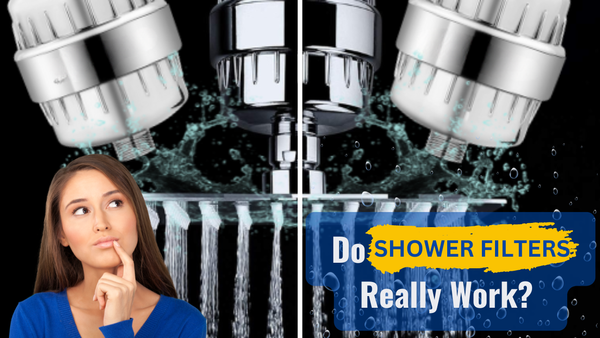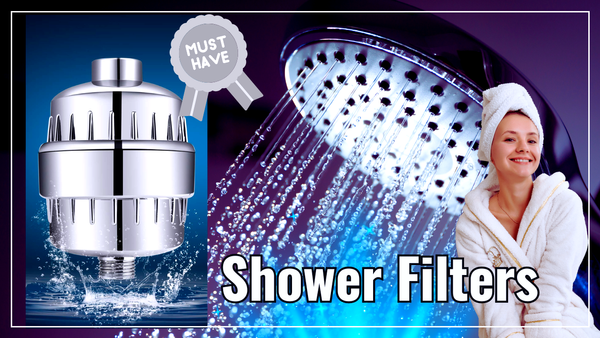Key Takeaways:
- Depending on usage and water quality, shower filters typically last between 6 to 12 months.
- Regular maintenance and timely replacement of filter cartridges are crucial for optimal performance.
- Different shower filters, such as activated carbon and vitamin C filters, offer various benefits for skin and hair health.
Have you ever wondered how long shower filters last? You probably haven’t given it much thought if you're like most people. But considering the impact of shower water on your skin and hair, it’s a question worth exploring. Shower filters are designed to remove harmful chemicals and contaminants from your water, ensuring a healthier shower experience. But how long can you rely on them before they need replacing?
Understanding Shower Filters
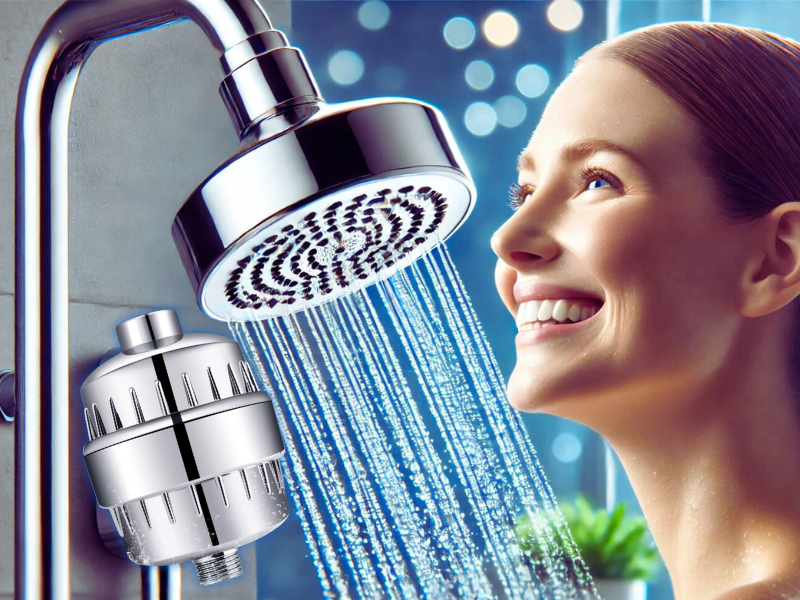
Shower head filters are devices attached to your showerhead or in line with your shower arm. They work by filtering out impurities from the water, such as chlorine, heavy metals, and other chemical contaminants. This improves water quality and benefits your skin and hair by reducing exposure to harsh chemicals. An inline shower water filter is positioned between the pipeline and the showerhead for effective filtration. It offers a compact design and ease of installation, which is especially beneficial for users of varying heights.
Various types of shower filters are available, including activated carbon filters, KDF filters, and vitamin C filters. Each type has its filtration media and method for removing contaminants. For instance, activated carbon filters use coconut shell carbon to absorb impurities, while KDF filters use a copper-zinc alloy to eliminate chlorine and heavy metals. Shower head water filters are particularly effective in removing contaminants and often use high-quality filtration materials like KDF and Calcium Sulfite, ensuring longevity and performance.
Definition of a Shower Filter
A shower head filter is a device that attaches to your showerhead to remove impurities and contaminants from your shower water. These filters are designed to tackle issues related to chlorine, which can cause dry skin and hair and unpleasant odors. By filtering out these harmful substances, shower filters ensure that the water you use for bathing is cleaner and healthier. This simple DIY solution can significantly improve your shower experience, making it more enjoyable and beneficial for your skin and hair.
How Long Do Shower Filters Last?
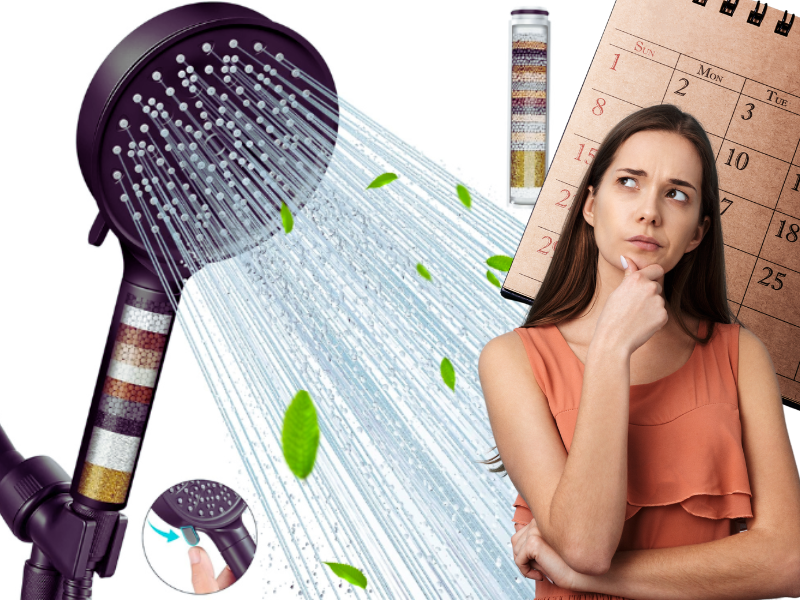
The lifespan of a shower filter largely depends on the type of filter and the quality of your water. On average, most shower filters last between 6 to 12 months. However, this can vary based on factors such as water usage, water quality, and the specific filter media used.
For example, activated carbon filters typically need replacing every 6 months, while KDF filters can last up to 12 months. Vitamin C filters, which are effective at removing chlorine, usually need to be replaced every 3 to 6 months. Following the manufacturer’s recommendations for your specific filter is essential to ensure optimal performance.
Signs Your Shower Filter Needs Replacing
One of the most obvious signs that your shower filter needs replacing is a decrease in water pressure. Most shower head filters, if installed correctly, do not decrease flow rates and can maintain a pressure rating between 40 to 80 psi, which is satisfactory for most users. As the filter media becomes clogged with impurities, it can restrict water flow, resulting in suboptimal water pressure. If you notice a significant drop in water pressure, it’s time to check your filter.
Another sign is a change in the smell or taste of your shower water. If you start to notice a harsh chemical smell or taste, it could indicate that the filter is no longer effectively removing contaminants. Additionally, if you experience itchy skin or dry hair after showering, it may be a sign that your filter needs replacing.
Benefits of Using Shower Filters
Using a shower filter offers numerous benefits for your skin and hair. By removing chlorine and other harmful chemicals, shower filters help maintain the natural protective oils on your skin and hair. This can result in healthier, softer skin and shinier, more manageable hair.
Shower filters also help reduce the risk of skin irritation and allergic reactions. Chlorinated water can cause dry, itchy skin and exacerbate conditions such as eczema and psoriasis. By filtering out chlorine and other irritants, shower filters can help alleviate these symptoms and improve overall skin health.
Types of Shower Filters
There are several types of shower filters available, each with its unique benefits. Activated carbon filters are one of the most common types and are highly effective at removing chlorine and other organic contaminants. They use coconut shell carbon to absorb impurities, resulting in cleaner, healthier water.
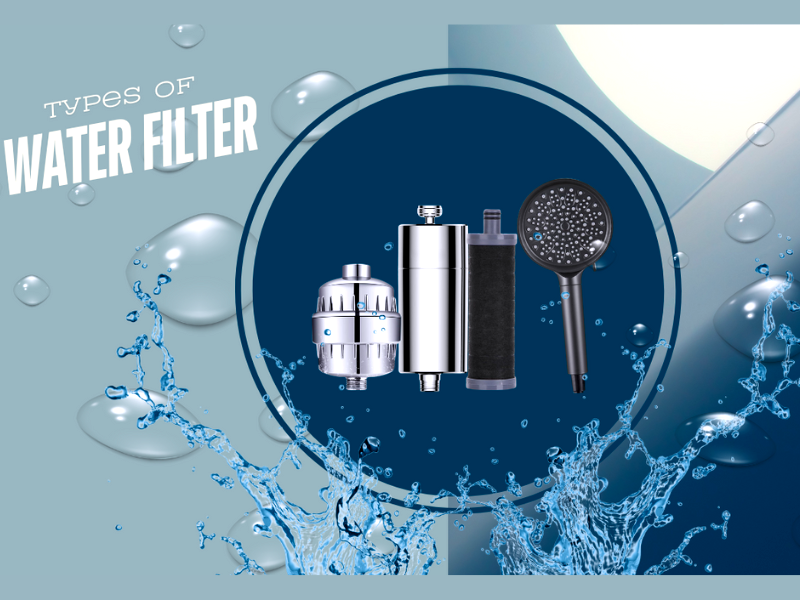
KDF filters use a copper-zinc alloy to eliminate chlorine and heavy metals from your water. They are particularly effective at removing chlorine and can also help reduce the buildup of scale and soap scum in your shower. However, traditional shower filters often fall short of removing chloramines, highlighting the need for more powerful filtration systems. Newer innovations like Vitamin C filters can successfully neutralize high levels of chlorine and chloramines, providing a more effective alternative for users concerned about water quality. Vitamin C filters are another popular option, as they neutralize chlorine and chloramines, making them ideal for people with sensitive skin.
Vitamin C filters are another popular option, as they neutralize chlorine and chloramines, making them ideal for people with sensitive skin. These filters are highly effective in removing chlorine and chloramines, and their ascorbic acid content can significantly improve skin health, delivering a soothing shower experience.
How Shower Filters Work
Shower filters work by passing water through a filtration media that traps and removes impurities. The specific filtration process depends on the type of filter. For example, activated carbon filters use a process called adsorption, where contaminants are attracted to and held on the surface of the carbon particles.
KDF filters use a redox (reduction-oxidation) reaction to convert chlorine into harmless chloride ions. This process also helps remove heavy metals and other contaminants. Vitamin C filters work by chemically neutralizing chlorine and chloramines, making them less harmful to your skin and hair.
Installation and Maintenance

Installing a shower filter is typically a straightforward process that can be done without professional help. Most shower filters are designed to be easily attached to your existing showerhead or in line with your shower arm. Simply follow the manufacturer’s instructions for installation.
Regular maintenance is crucial for ensuring the longevity and effectiveness of your shower filter. This includes periodically checking the filter for signs of wear and replacing the filter cartridge as needed. Most manufacturers recommend replacing the filter cartridge every 6 to 12 months, depending on usage and water quality.
Choosing the Right Shower Filter
When choosing a shower filter, it’s important to consider your specific needs and preferences. For example, if you have sensitive skin, you may want to opt for a vitamin C filter, which is highly effective at neutralizing chlorine. If you’re concerned about heavy metals in your water, a KDF filter may be a better choice.
It’s also important to consider the water pressure in your home. Some shower filters can reduce water pressure, so it’s essential to choose a filter that is compatible with your specific pressure range. Additionally, consider the overall design and aesthetics of the filter to ensure it complements your bathroom decor.
Impact on Water Pressure
One common concern with shower filters is their potential impact on water pressure. Shower head filters are designed to remove impurities like chlorine and heavy metals without significantly affecting water pressure. As the filter media becomes clogged with impurities, it can restrict water flow, resulting in reduced water pressure. To avoid this issue, it’s important to choose a high-quality filter and replace the filter cartridge regularly.
Some shower filters are specifically designed to maintain optimal water pressure, even as the filter media becomes saturated with contaminants. Look for filters that are rated for high-pressure showers and have a built-in mechanism to prevent clogging.
Health Benefits

The health benefits of using a shower filter are numerous. By removing chlorine and other harmful chemicals from your water, shower filters help protect your skin and hair from damage. This can result in healthier, softer skin and shinier, more manageable hair.
Shower filters can also help reduce the risk of respiratory issues. Chlorine and other chemicals in shower water can be inhaled as steam, potentially causing respiratory irritation. By filtering out these chemicals, shower filters can help improve indoor air quality and reduce the risk of respiratory problems.
Improving Skin and Hair Health
One of the primary benefits of using a shower filter is the improvement in skin and hair health. Chlorine and other chemicals in shower water can strip your skin and hair of their natural protective oils, leading to dryness and irritation. By removing these chemicals, shower filters help maintain the natural moisture balance of your skin and hair.
This can result in softer, smoother skin and shinier, more manageable hair. Additionally, shower filters can help reduce the risk of skin irritation and allergic reactions, making them ideal for people with sensitive skin or conditions such as eczema and psoriasis.
Reducing Chlorine Exposure
Chlorine is commonly used to disinfect municipal water supplies, but it can have harmful effects on your skin and hair. Prolonged exposure to chlorinated water can cause dryness, irritation, and damage to your skin and hair. Shower filters are designed to remove chlorine from your water, reducing your overall exposure.
By reducing chlorine exposure, shower filters help protect your skin and hair from damage and improve overall health. This is particularly important for people with sensitive skin or conditions such as eczema and psoriasis, as chlorine can exacerbate these issues.
Eliminating Heavy Metals
In addition to chlorine, shower filters can also help remove heavy metals from your water. Heavy metals such as lead, mercury, and cadmium can be harmful to your health and can accumulate in your body over time. Shower filters, particularly those with KDF media, are effective at removing heavy metals from your water.
By eliminating heavy metals, shower filters help protect your health and reduce the risk of long-term health issues. This is particularly important for households with older plumbing systems, as these are more likely to leach heavy metals into the water supply.
Enhancing Shower Experience

Using a shower filter can significantly enhance your overall shower experience. By removing chlorine and other contaminants, shower filters help improve the quality of your water, resulting in a more enjoyable and refreshing shower. This can make a significant difference in your daily routine and overall well-being.
Additionally, shower filters can help reduce the buildup of scale and soap scum in your shower, making it easier to keep your bathroom clean. This can save you time and effort in maintaining your shower and improve the overall aesthetics of your bathroom.
Compatibility with Existing Showerheads
Most shower filters are designed to be compatible with standard showerheads, making them easy to install and use. Whether you have a traditional showerhead or a high-pressure showerhead, there is likely a shower filter that will work with your existing setup.
When choosing a shower filter, it’s important to check the compatibility with your existing showerhead. Some filters are designed to be attached directly to the showerhead, while others are installed in line with the shower arm. Make sure to choose a filter that is compatible with your specific setup for optimal performance.
Replacement Filters
Regularly replacing your shower filter cartridge is crucial for maintaining optimal performance. Most manufacturers recommend replacing the filter cartridge every 6 to 12 months, depending on usage and water quality. Replacement filters are typically easy to install and can be purchased from the manufacturer or online retailers.
When purchasing replacement filters, it’s important to choose the correct type for your specific shower filter. Using the wrong type of filter can result in suboptimal performance and may even damage your shower filter. Always follow the manufacturer’s recommendations for replacement filters to ensure the best results.
Water Quality
The quality of your water can have a significant impact on the lifespan and effectiveness of your shower filter. If you have hard water or water with high levels of chlorine and other contaminants, your shower filter may need to be replaced more frequently. Regularly testing your water quality can help you determine the best type of shower filter for your needs.
Improving your overall water quality can also help extend the lifespan of your shower filter. This can be achieved by using a whole-house water filtration system or water softener to reduce the levels of contaminants in your water supply.
Shower Water Flows
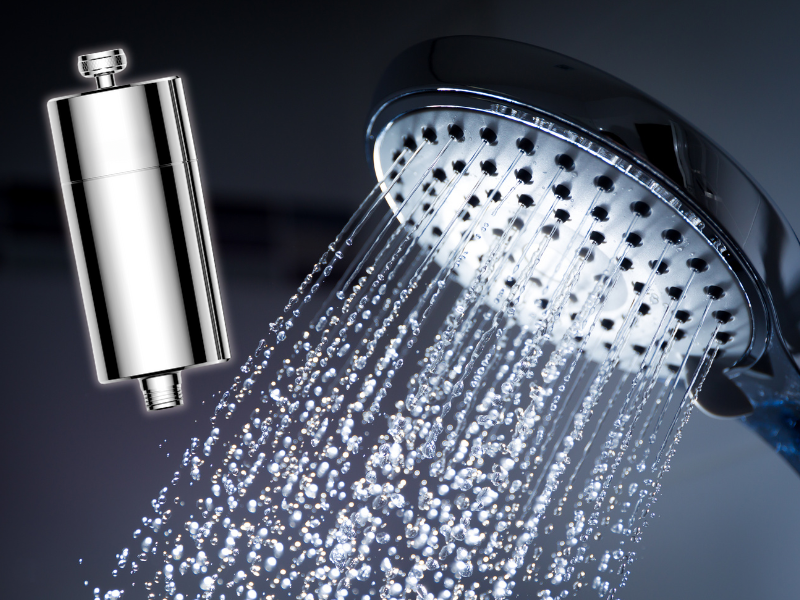
The flow rate of your shower water can also impact the effectiveness of your shower filter. High water flow rates can reduce the contact time between the water and the filtration media, resulting in less effective filtration. Choosing a shower filter that is designed for high-pressure showers can help ensure optimal performance.
Additionally, regularly cleaning your showerhead and filter can help maintain optimal water flow and prevent clogging. This can help extend the lifespan of your shower filter and improve the overall quality of your shower water.
Showerhead Filters
Showerhead filters are designed to be attached directly to your existing showerhead, making them a convenient option for anyone looking to improve their shower water quality. These filters are available in various types, including activated carbon, KDF, and vitamin C filters. Showerhead filters are easy to install and maintain, with most requiring replacement every 6 to 12 months.
These filters are a great choice for anyone looking to improve their shower experience without replacing their existing showerhead. They are also a cost-effective option, as they typically have a longer lifespan and require less frequent replacement.
Environmental Impact

Using a shower filter can also have a positive impact on the environment. By reducing the amount of chlorine and other chemicals in your shower water, you’re helping to reduce the overall chemical load on the environment. Additionally, some shower filters are made from eco-friendly materials and are designed to be recyclable.
When choosing a shower filter, look for products that are environmentally friendly and have a minimal impact on the environment. This includes filters made from sustainable materials and those that are designed to be easily recycled.
Summary
Shower filters are an essential addition to any bathroom, offering numerous benefits for your skin and hair health. By removing chlorine, heavy metals, and other contaminants from your water, shower filters help maintain the natural protective oils on your skin and hair, resulting in healthier, softer skin and shinier, more manageable hair.
The lifespan of a shower filter depends on the type of filter and the quality of your water, with most filters lasting between 6 to 12 months. Regular maintenance and timely replacement of filter cartridges are crucial for optimal performance. Whether you choose an activated carbon filter, KDF filter, or vitamin C filter, using a shower filter can significantly enhance your overall shower experience.
Keep up with the latest water filter tips and offers, and subscribe to our newsletter today!
FAQ
How often should I replace my shower filter?
Most shower filters need to be replaced every 6 to 12 months, depending on usage and water quality. It’s important to follow the manufacturer’s recommendations for your specific filter to ensure optimal performance.
Can shower filters reduce water pressure?
Some shower filters can reduce water pressure if the filter media becomes clogged with impurities. To avoid this issue, choose a high-quality filter and replace the filter cartridge regularly.
Are shower filters worth the investment?
Yes, shower filters are worth the investment for the numerous benefits they offer. By removing harmful chemicals and contaminants from your water, shower filters help improve skin and hair health, reduce the risk of skin irritation, and enhance your overall shower experience.
